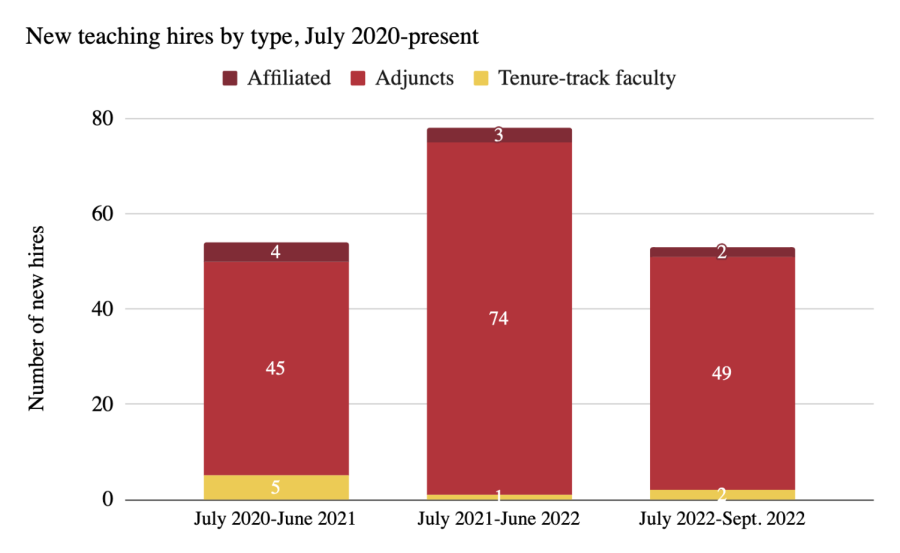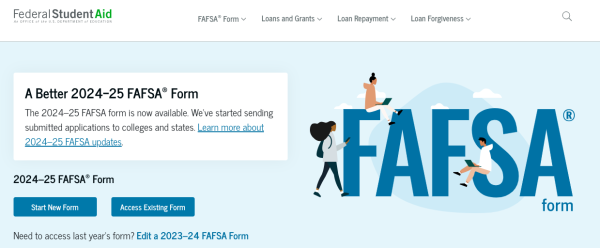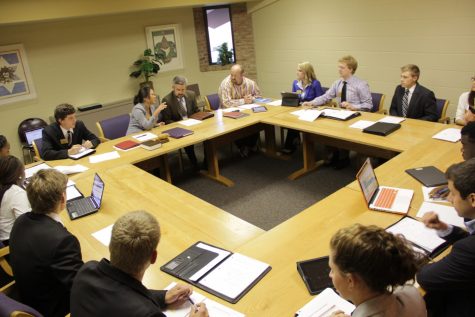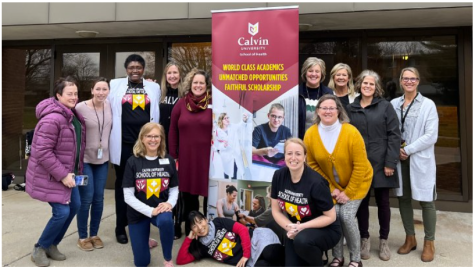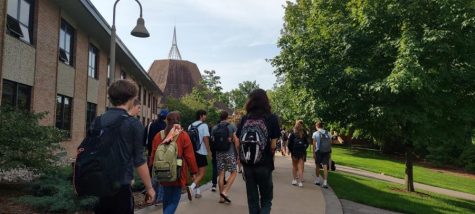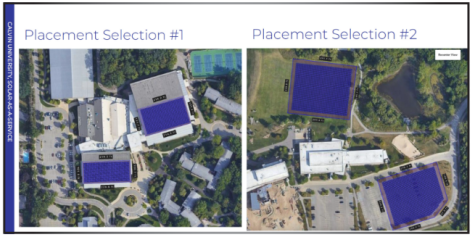Calvin is hiring more new teachers, but fewer tenure-track faculty
New hires are becoming increasingly common at Calvin, but most new hires aren’t full faculty like Mattson. Calvin has ramped up its use of adjunct faculty in recent years, and it has now also introduced a postdoctoral teaching fellowship program, which brings in more temporary instructors.
Craig Mattson spent more than two decades teaching at Trinity Christian College in Chicago.
But two weeks ago, he started at Calvin as a professor of communication and the DeKruyter Chair in Faith and Communication.
“The challenge of the new was enticing for me,” Mattson said. “It felt both a little bit disconcerting and pretty exciting.”
In addition to being an experienced teacher, Mattson is a communications scholar engaged in research. “One major area [of my scholarship] is digital overwhelm for early career professionals,” he said. He also studies relationships between predominantly white institutions and community-based organizations — research that he believes has the potential to impact Calvin and the greater Grand Rapids community.
Thus far, Mattson’s experience at Calvin has been positive. “When I finally got back in the classroom, that’s when I felt most at home,” he said. “It’s delightful to work with students.”
New hires are becoming increasingly common at Calvin, but most new hires aren’t full faculty like Mattson. Calvin has ramped up its use of adjunct faculty in recent years, and it has now also introduced a postdoctoral teaching fellowship program, which brings in more temporary instructors. Meanwhile, a disproportionate number of terminations have been of tenure-track faculty.
More new teachers, fewer tenure-track faculty
From July 2020 to June 2021 — over a single fiscal year — Calvin hired 54 new instructors; in the year following, the university hired another 78, an increase of 44.4%.
And in just July, August and the beginning of September 2022, 53 more faculty members have been hired. In other words, in less than three months, Calvin has hired about as many new faculty members as it did in the entire 2020-2021 fiscal year.
But who, exactly, is being hired?
According to David Wunder, dean for faculty development and research initiatives, there are three main categories of new hires: tenure-track professors, like Mattson, who work full time for the university and are intended to be long-term appointments; affiliate faculty members, who work full time but only for a year; and adjunct faculty members, who teach just a course or two at a time.
Most of Calvin’s new hires are intended to be temporary.
Adjunct faculty members have been by far the most common new hires in the last three years — and their numbers are only increasing, according to data provided by the human resources department. In the 2020-2021 fiscal year, 83.3% of new hires were adjunct instructors; for the 2021-2022 fiscal year, this percentage jumped to 94.9%.
Meanwhile, new tenure-track professors such as Mattson are a rarity. They composed only 9.3% of new hires in the 2020-2021 fiscal year, a percentage which plummeted to 1.3% in the following fiscal year.
The makeup of newly-hired faculty does not match the makeup of terminated — voluntarily or otherwise — faculty, based on data from the human resources department. Over the past few fiscal years, terminations have been more evenly split between tenure-track and adjunct faculty. In fact, in the 2021-2022 fiscal year, more tenure-track professors exited Calvin than did any other type of faculty member.
Although the data does not account for inside promotions, it is clear that both the proportion and the raw number of tenure-track professors at Calvin are decreasing. According to data obtained by Chimes, Calvin’s number of tenure-track faculty has declined by more than 100 since 2013. Meanwhile, the number of adjunct instructors has steadily increased.
“A period of transition”
There are five new tenure-track professors starting this school year, according to Heidi Rienstra, executive assistant to the provost. These professors — one of whom is Mattson — can be found teaching nursing, communication, business and education classes. But, in contrast, there are “dozens” of new adjunct faculty members, Wunder said.
One of these new adjunct instructors is April VanPutten, who was hired to teach a single class: government and nonprofit accounting, which falls under Calvin’s master’s of accounting program.
“I’m really enjoying interacting with students and seeing their passion for accounting,” she said of her first week teaching.
Beyond her work at Calvin, VanPutten is also the business manager of a small nonprofit. And this summer, she even launched her own business.
With so much going on, working as an adjunct instructor “is perfect for me right now,” VanPutten said, noting the positive nature of her experience at Calvin. “I feel like a valued member of the team. That can sometimes be difficult as an adjunct [given the position’s temporary nature], but I don’t get that sense at Calvin.”
But what accounts for Calvin’s shift toward temporary professors?
“I think we’re in a period of transition,” Wunder said, citing last year’s voluntary exit program for long-term faculty members and the ongoing four-two credit transition. “That means we’ve lost faculty, and we’re decreasing the number of courses that will be taught.”
After the conclusion of this transitional period, he continued, “the expectation is that we will decrease the number of courses taught by adjuncts and increase the number of courses taught by full-time faculty.”
During this period of transition, Calvin is experimenting with new teaching programs, too.
Teachers as learners
About a month ago, the de Vries Postdoctoral Teaching Fellowship welcomed its inaugural cohort of four postdoctoral fellows. These freshly-graduated PhDs will spend two years at Calvin teaching undergraduate courses and conducting research in their chosen departments, which range from philosophy to political science — all while being mentored by seasoned professors.
According to Matt Lundberg, director of the de Vries Institute for Global Faculty and a mentor to the fellows, teaching is the central focus of the fellows’ time at Calvin. “They’re really dedicated to the craft of teaching,” he said.
“In the same way that students come to Calvin to learn, faculty are also learners,” added Wunder, another key player in designing and implementing the fellowship. “What I think is quite exciting is the idea that when we’re in a classroom, we learn together.”
For Jae Yang, a postdoctoral fellow in the religion department, this focus on teaching makes all the difference. “Graduate school teaches you how to research and write, but it doesn’t really teach how to teach,” he said. This semester, Yang is teaching introduction to Christian theology — an endeavor which he described as both “exciting and difficult” thus far.
During his two years at Calvin, Yang hopes to “learn what it means to be not just a deliverer of content, but a true teacher.”
At its heart, according to Lundberg, the de Vries Postdoctoral Fellowship is inherently an investment.
“In the short term, we’re investing in Calvin,” he said, but “in the long term, these fellows may end up who knows where!”
In short, Lundberg said, “this is a way that Calvin is trying to invest in the future of Christian higher education.”



